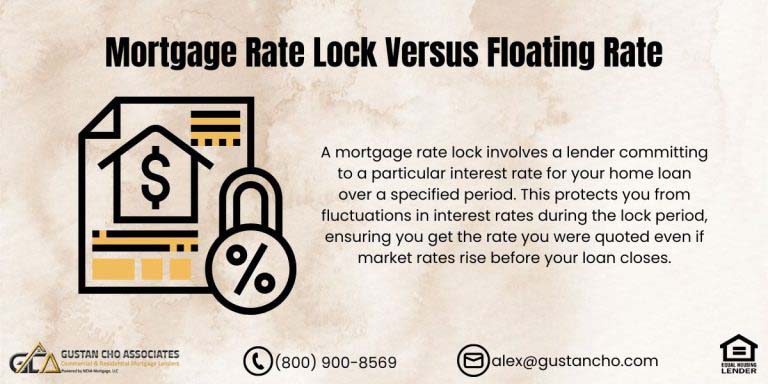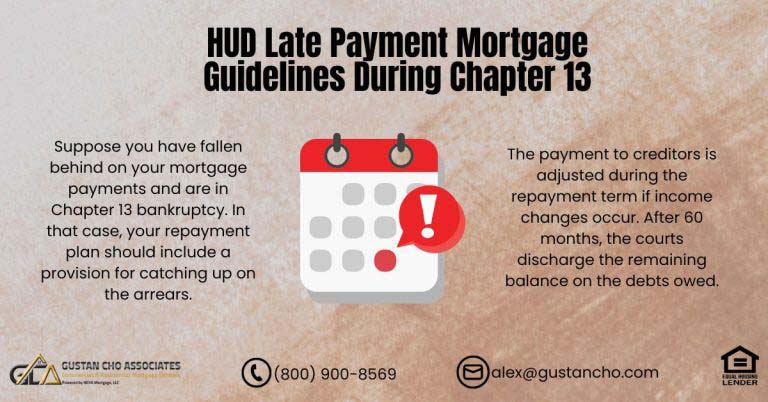Quick Answer
Credit during the mortgage process affects your approval in three ways: (1) eligibility for certain programs, (2) interest rate and pricing, and (3) how underwriting views your debts and payment history. Protect your credit from pre-approval through closing by avoiding new debt, late payments, and credit disputes—then work with a lender who follows agency guidelines without extra overlays.
What You’ll Learn
- How credit during the mortgage process affects your chances of approval
- Why your mortgage score can differ from your “free score”
- Minimum credit rules by program (and what lender overlays change)
- When lenders check credit during underwriting and before closing
- How disputes, utilization, and new accounts can delay approval
- A simple “do this / avoid this” checklist to protect approval
Why Credit During the Mortgage Process Matters
Your credit tells lenders one big thing: how likely you are to pay back a loan on time. A strong credit profile can mean:
- Lower interest rates: putting money back in your pocket throughout the life of your loan.
- Easier approvals: more loan programs to choose from.
- Flexibility on debt-to-income (DTI) ratios: higher DTI allowances if your credit is strong.
On the flip side, damaged credit doesn’t mean you can’t buy a home—it just means you need the right lender who understands how credit during the mortgage process affects your homebuying process and your options. That’s where we come in.
Confused About Your Credit Score and Credit Report? We Can Help You Understand the Difference!
Contact us today to learn how they impact your mortgage and what steps you can take to improve them.
Credit Score vs. Credit Report: What’s the Difference?
When you’re in the mortgage process, it’s good to get a handle on two things: credit scores and credit reports. Knowing the difference between them can help you manage your finances more effectively. A credit score is a three-digit number between 300 and 850 that shows how risky you are to lend money to. Most lenders look at FICO® scores, but some might also use VantageScore.
On the other hand, a credit report gives a detailed look at your financial history. It includes your account histories, balances, payment records, and any inquiries made about your credit. This report comes from three major credit bureaus: Experian, Equifax, and TransUnion. Together, your credit score and report help lenders assess your creditworthiness.
Think of your credit score as your “grade” that reflects your overall credit risk. Your credit report acts as the “report card” that shows how that grade was determined. Lenders check out your credit score and credit report to see if you’re a trustworthy borrower. So, it’s super important to understand credit during the mortgage process, what they are and keep an eye on them.
Minimum Credit Score Requirements in 2026
Credit requirements still vary by loan type — but in 2026, the most important thing to understand is this: agency rules, automated underwriting findings (AUS), and lender/investor overlays all work together. So instead of a single “magic number” affecting your credit during the mortgage process, think in terms of ranges and scenarios.
FHA Loans (Government-Insured)
- 580+: Often eligible for 3.5% down under Federal Housing Administration (FHA) guidelines (assuming the rest of the file meets standards).
- 500–579: May be eligible with 10% down (and underwriting may be stricter depending on the overall file and lender overlays).
- Below 500: Not eligible for FHA-insured financing.
Trust note: FHA sets the baseline, but many lenders add overlays on top of the minimums.
VA Loans (Government-Guaranteed)
- No minimum credit score is set by the U.S. Department of Veterans Affairs. Approval is based on the full credit profile and AUS/lender review.
- Many lenders still prefer certain score levels as an overlay, even though it’s not a VA rule.
USDA Loans (Government-Guaranteed Rural Housing)
- USDA Rural Development does not publish a single universal minimum score, but it does require a deeper review when scores are lower.
- A common industry benchmark is 640+ for smoother automated processing, while scores below 640 typically trigger a full credit review (with more documentation and greater underwriting scrutiny).
Conventional Loans (Fannie Mae / Freddie Mac)
- Many conventional approvals still cluster at ~620+, because stronger credit usually means smoother AUS findings and better pricing.
- But “Conventional = minimum 620” is no longer universally accurate. In late 2025, Fannie Mae updated Desktop Underwriter (DU) so that new casefiles no longer require a minimum third-party credit score (effective for new DU casefiles created on/after mid-November 2025).
- Freddie Mac guidance still generally requires at least one borrower to have a usable credit score for many transactions, and its AUS rules/messages can vary by case and product type.
Bottom line: With conventional loans in 2026, AUS findings and the lender’s execution matter more than a single hard minimum. Some files can work with alternative or limited credit profiles, but they’re often more documentation-heavy and lender-dependent.
Lender Overlays and Why They Matter
Government agencies (HUD, VA, USDA, Fannie Mae, Freddie Mac) set minimum guidelines. However, many banks and lenders add their own stricter rules, known as lender overlays.
For example, FHA allows 580 scores with 3.5% down. But many banks require 640 or higher. That’s an overlay.
At Gustan Cho Associates, we know credit during the mortgage process by heart and have no lender overlays. If the agency allows it, we follow it. That’s why so many borrowers who were denied elsewhere get approved with us.
Wondering About Your Credit Score vs. Credit Report? Let Us Explain How They Affect Your Loan!
Reach out now to understand how each affects your ability to qualify and get the best rates.
How Credit Affects Debt-to-Income Ratios (What Really Changes)
Most buyers think debt-to-income (DTI) is just a math problem. In real underwriting, DTI is a risk decision—and your credit profile helps determine how flexible a lender (and AUS) can be with that risk.
What Improves When Your Credit is Strong
When your credit is solid, you usually get more “yes” leverage in the file—even if your DTI is higher.
- Better pricing (lower rate and/or fewer fees): Stronger credit typically means less risk-based pricing, which can keep your payment lower and improve affordability.
- Stronger automated underwriting (AUS) findings: Clean payment history and solid scores often produce more favorable AUS outcomes, which can reduce friction in underwriting.
- More program options: Strong credit can open up more choices (conventional, jumbo, specialty products), giving you flexibility if one route doesn’t fit your DTI.
- More tolerance for “normal” credit patterns: If you have a strong profile overall, underwriters are less likely to zoom in on minor issues (older lates, small collections, thin revolving history).
- Smoother reserve expectations: With a strong credit profile, you’re less likely to be asked for additional reserves beyond what the program requires (especially when the rest of the file is stable—income, assets, and job history).
- Fewer compensating-factor demands: Underwriters don’t need as many “extra strengths” (like large reserves or long job tenure) to offset risk when credit is already a strength.
What Hurts When Your Credit is Weak
When credit is challenged, the lender’s primary goal becomes reducing risk, and that often shows up as tighter DTI comfort—even if the numbers technically work.
- Pricing hits that reduce affordability: Lower scores can lead to higher rates and/or pricing adjustments, which can raise your payment and push your DTI higher—creating a domino effect.
- More lender overlays: Even if an agency guideline allows something, many lenders tighten their rules for lower-score borrowers (minimum score overlays, lower max DTI preferences, stricter reserve requirements).
- Higher chance of manual underwriting or “refer/eligible” style outcomes: Weaker credit can reduce the chance of a clean AUS approval and increase the likelihood of a more documentation-heavy path.
- More conditions and documentation: Expect more underwriter “asks,” such as:
- letters of explanation for late payments or derogatory events,
- proof that a disputed account is resolved or removed,
- additional bank statement sourcing
- verification of rent (where applicable)
- Less flexibility with layered risk: If multiple risk factors stack up (thin credit + high utilization + short job time + high DTI), underwriters typically become far less flexible—even if each item alone isn’t fatal.
- Greater scrutiny of revolving debt: High credit card utilization, recent new accounts, or frequent inquiries can make the file look unstable—especially if DTI is already tight.
The Takeaway for Buyers
DTI isn’t judged in a vacuum. Two borrowers can have the same DTI and income, but the one with stronger credit often gets a smoother approval, better pricing, and fewer conditions.
Pro Tip: If your DTI is close, focus on the fastest “credit levers” that help underwriting: paying down revolving balances, avoiding new credit, and keeping every payment on time until closing.
Protect Your Approval Checklist (Do This Until You Close)
Do This From Pre-Approval to Closing
- Pay every bill on time—no exceptions. One 30-day late payment can change your approval, pricing, or loan program.
- Keep credit card balances low and steady. If you need to use cards, try to keep utilization consistent (big jumps right before closing are risky).
- Keep your bank accounts calm. Avoid large cash deposits, unexplained transfers, or “cash apps” activity that can’t be sourced.
- Keep your job and income stable. Tell your loan officer before changing jobs, switching pay structure, or cutting hours.
- Answer conditions fast. Underwriting delays often come from missing docs—not the credit score itself.
- Ask before disputing anything. Even “small” disputes can trigger a credit re-check or manual underwriting in some cases.
- Check your credit report for surprises early. If an error needs fixing, do it before you’re under contract when possible.
Avoid This Until After Closing
- Don’t open new credit (credit cards, personal loans, store financing, “0% for 12 months” offers).
- Don’t co-sign for anyone (it can add debt and hurt DTI, even if you never make the payment).
- Don’t buy or lease a car (a new payment + a new inquiry is a common deal killer).
- Don’t finance furniture or appliances (even “buy now, pay later” can count as new debt).
- Don’t run up balances for points, miles, or business expenses.
- Don’t close accounts (closing cards can raise utilization and reduce available credit).
- Don’t apply for anything that pulls credit—even if you “just want to see the rate.”
If You MUST Do Something Financial, Do This First
- Text/call your loan officer before you act. Most problems are avoidable if we plan them.
Credit Disputes During the Mortgage Process
Credit disputes can create underwriting delays because they may change credit during the mortgage process. The safest move is simple: don’t add or reopen disputes once you’re in the mortgage process unless your loan officer tells you to.
Generally OK: Medical Disputes (With a Few Exceptions)
In many cases, medical disputes are treated more flexibly than other disputes—especially on FHA financing. FHA guidance excludes disputed medical accounts from certain dispute limits. It typically does not require extra documentation just because a medical account is marked “in dispute.”
When medical disputes can still become an issue:
- If the account isn’t truly medical (miscoded by the bureau), underwriting may treat it as non-medical.
- If you have a pattern of disputes that makes the overall report look unstable, an underwriter may still ask for a brief explanation.
- If the dispute is tied to a housing-related tradeline (for example, rent or mortgage history reporting), it can draw extra scrutiny even if the balance is small.
Often a Problem: Non-Medical Derogatory Disputes
Non-medical disputes on derogatory accounts (collections, charge-offs, or accounts with late payments) are the most common triggers of underwriting problems.
For FHA, if the file has $1,000 or more (cumulative) in disputed derogatory accounts, the loan may need to be downgraded to manual underwriting (with specific exclusions).
Key FHA exclusions (often overlooked):
- Disputed medical accounts are excluded from the $1,000 calculation.
- Disputed derogatory accounts tied to identity theft/unauthorized use may be excluded, but documentation is required (e.g., a police report, a creditor letter, or other acceptable proof).
For conventional loans, the impact is usually AUS-driven. If the AUS approves the loan using the disputed tradelines, no further action may be required. But if the findings flag disputes as a risk factor—especially multiple disputes or disputes on key tradelines—lenders often must document the reason for the dispute and confirm what part of the tradeline is being challenged.
What Underwriters Commonly Do When Disputes Show Up
If disputes appear on the credit report, here are the most common actions underwriting may require (depending on the loan type and AUS findings):
- Remove the dispute comments (or provide proof that the dispute is resolved), then re-run AUS with the updated credit report.
- Ask the borrower to provide a letter explaining the reason for disputing the account and detailing the specific information that is being contested.
- For identity theft/unauthorized use disputes, require supporting documentation (a police report, a creditor letter, or other acceptable proof).
- Include a monthly payment in DTI for certain disputed accounts when required by the underwriting system/guidelines.
- Downgrade to manual underwriting (most common on FHA when thresholds are met).
Pro tip (keep it simple): If something on your report is truly wrong, talk with Gustan Cho Associates first. There are cases where correcting an error helps credit during the mortgage process—but disputing the wrong item at the wrong time can delay your closing.
How to Improve Credit During the Mortgage Process
If your credit needs a boost, here are practical steps:
- Check your report for errors: Dispute mistakes early (before applying).
- Pay bills on time: Even one 30-day late payment can hurt.
- Lower credit card balances: Aim for less than 30% utilization.
- Use secured credit cards: Three cards with $500 limits can raise scores quickly.
- Avoid new inquiries: Wait until after closing for new loans or credit cards.
At Gustan Cho Associates, we guide borrowers through rebuilding credit during the mortgage process so they can be approved.
Final Thoughts: Your Credit Doesn’t Have to Hold You Back
Your credit during the mortgage process matters—but it doesn’t have to be perfect. At Gustan Cho Associates, we help borrowers denied elsewhere because of their credit every day. We understand agency guidelines, we know how to guide you through disputes and rebuilding, and we’ll work with you until you qualify.
Call us at 800-900-8569 or email gcho@gustancho.com. We’re available 7 days a week, evenings, weekends, and holidays.
Don’t let credit hold you back from owning a home. With the right lender, you can still get approved—even if you’ve got some bumps in your credit history.
Struggling to Understand Credit Scores vs. Credit Reports? We’re Here to Help!
Reach out now to learn how both factors influence your mortgage options.
Frequently Asked Questions About Credit During the Mortgage Process:
Will My Lender Recheck My Credit Before Closing?
Yes—many lenders do a final credit check (often a “refresh”) shortly before closing to confirm you haven’t taken on new debt or missed payments since approval.
What is a “Credit Refresh” (Soft Pull)?
A credit refresh is typically a soft inquiry used to look for new accounts, new inquiries, or changes to balances or obligations since the original credit report—without generating a new hard pull in most cases.
Can I Use My Credit Cards During the Mortgage Process?
You can, but it’s risky. The safest move is to keep balances low and consistent and avoid hefty new charges—because higher utilization can lower scores and increase your DTI/payment obligations.
Can I Open a New Credit Card While Buying a House?
It’s strongly recommended not to. New credit can add a hard inquiry, reduce average account age, and potentially add new monthly obligations—any of which can trigger re-underwriting or delays.
What Happens if My Credit Score Drops Before Closing?
A meaningful drop can cause the lender to re-price the loan, request more conditions, or, in some cases, deny the loan if you no longer meet the approved terms. This is why protecting credit during the mortgage process is so important, from pre-approval through funding.
Will Paying Off Debt Help or Hurt My Mortgage Approval?
Often it helps—especially if it lowers monthly payments and improves DTI. But avoid closing accounts or making large, unexplained transfers to pay off debts. Always coordinate timing with your loan officer to keep documentation clean.
Should I Close Credit Cards Before Applying for a Mortgage?
Usually, no. Closing cards can reduce available credit and increase utilization, which can drop scores. If a card has an annual fee you want to remove, ask your lender first and consider waiting until after closing.
How Many Points Does a Mortgage Credit Inquiry Drop My Score?
It varies by person and scoring model, but the bigger takeaway is that mortgage “rate shopping” is generally protected: newer FICO scoring models typically treat multiple mortgage inquiries within a window (commonly up to 45 days) as a single inquiry for scoring.
Can I Dispute Items on My Credit Report While getting a Mortgage?
Sometimes, but it can delay underwriting—especially if disputes change how debts are counted or trigger manual review. Before starting or reopening a dispute, talk with your lender first to avoid accidentally stalling the file.
Does Shopping for Mortgage Rates Hurt My Credit?
Not in the way most people fear. The Consumer Financial Protection Bureau explains that multiple mortgage credit checks within a set window are typically treated as one for scoring, so you can compare offers without getting “dinged” repeatedly.
This article about “Credit During the Mortgage Process Made Simple” was updated on January 30th, 2026.
How does credit affect my mortgage approval?
Lenders review your history, scores, and current accounts closely.










